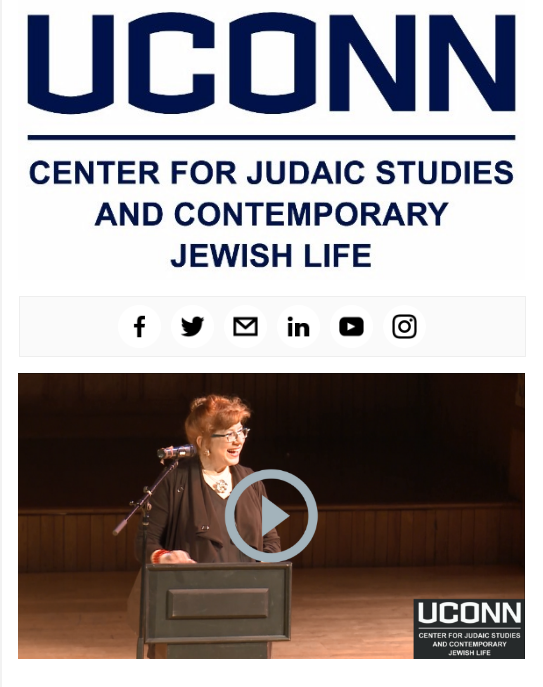American Jewish Year Book 2017 Now Available:
Includes the Impact of the 2016 Presidential Campaign
and the most Recent Population Statistics
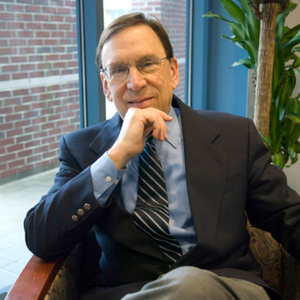 The 2017 volume of the American Jewish Year Book, published by Springer and supported by the Center for Judaic Studies and Contemporary Jewish Life at the University of Connecticut and the Miller Center for Contemporary Judaic Studies at the University of Miami, has recently been released. Included in this volume of the annually published Year Book are topical review articles, population studies, and extensive lists detailing the numerous North American Jewish institutions, periodicals, academic resources, and major events.
The 2017 volume of the American Jewish Year Book, published by Springer and supported by the Center for Judaic Studies and Contemporary Jewish Life at the University of Connecticut and the Miller Center for Contemporary Judaic Studies at the University of Miami, has recently been released. Included in this volume of the annually published Year Book are topical review articles, population studies, and extensive lists detailing the numerous North American Jewish institutions, periodicals, academic resources, and major events.
“The Jewish Place in America’s Religious Landscape” by Alan Cooperman and Becka A. Alper of the Pew Research Center examines the similarities and differences between Jews and other religious groups in the US in terms of demographics, religious beliefs and practices, and political views. The authors find that while Jewish retention rates remain high, other religious groups in the US are seeing a rapid rise of disaffiliation rates. According to the authors, "overall…American Jews as a whole appear to be relatively stable as a share of the overall US population, though likely growing in absolute numbers. Furthermore, based on the demographic characteristics of Orthodox Jews briefly discussed here and in the 2013 report, 'A Portrait of Jewish Americans,' the share of Orthodox Jews may be growing as a percentage of the US Jewish community. As such, the profile of American Jews could shift somewhat, particularly in regards to religious beliefs and practices, social and political views, and demographic characteristics."
Bruce A. Phillips of Hebrew Union College-Jewish Institute of Religion, Los Angeles, thoroughly investigates one of the most controversial and important topics in the Jewish community today in “Intermarriage in the Twenty-First Century: New Perspectives.” The debate over in-reach/outreach is explored, and multiple approaches, from the sociological to the economic, are used to examine the behavior. Phillips challenges "the 'damage assessment' narrative by finding that the percentage of Mixed Ancestry respondents who identify as Jewish in any way has actually increased from childhood to adulthood. Beyond the impact of Jewish socialization experiences" Phillips argues "that this phenomenon is influenced by larger trends in American society in which mixed race identities are increasingly accepted and even embraced. Single Ancestry respondents are apparently finding ways to explore their Jewishness outside of religion. Given that Mixed Ancestry will be the norm as Jewish children become adults, learning more about how they identify both through quantitative and qualitative research, particularly in the context of the newly emerging sub-field of 'mixed race studies,' should be a priority for the sociological study of American Jewry. Such a conclusion points to the valuable insights gained from contemporary social science research in understanding the trajectory of the future of American Jewish life."
Two year-in-review articles focus on US affairs and the international arena. Both examine the implications of a Trump presidency with Miriam Sanua Dalin (Florida Atlantic University) exploring the topic through a domestic lens: "The tensions within the American Jewish community that became more apparent in the struggles over the Iran Deal and the presidential election of 2016 remain and continue to divide American Jews within families, friendship circles, congregations, and community organizations. How these internal conflicts are managed in the coming years bears further scrutiny." Mitchell Bard (The American–Israeli Cooperative Enterprise) assesses the implications for US-Israel relations: "In Washington’s toxic partisan environment, Republicans and Democrats found at least four issues on which they could agree, all related to Israel; first, strengthening the US-Israel relationship; second, taking a stand against UN bias against Israel; third, opposing boycotts of Israel; and, fourth, imposing new sanctions on Iran."
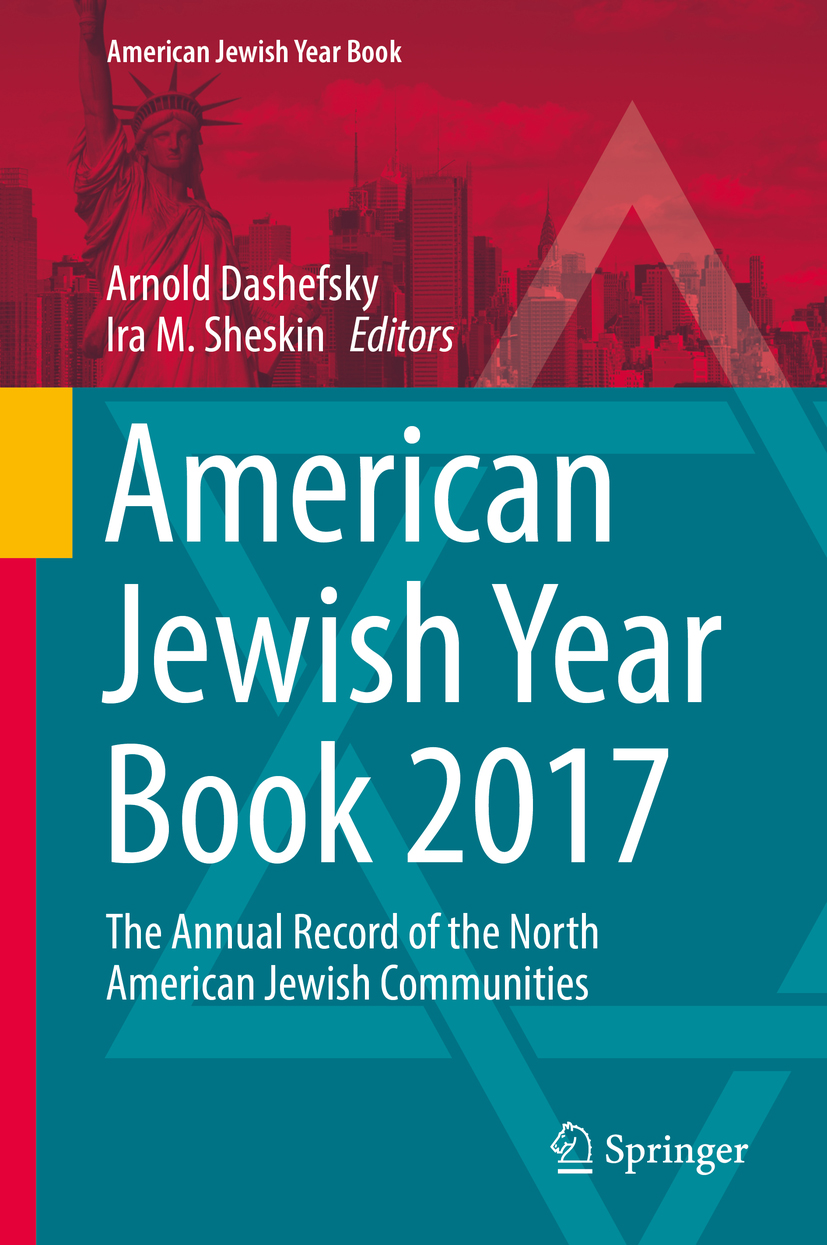 Chapters on population studies for the United States, world Jewry, and Canada provided by Ira Sheskin and Arnold Dashefsky, Sergio DellaPergola, and Charles Shahar round out the review articles. Based on an aggregation of over 900 local estimates, the US population article by Sheskin and Dashefsky estimates the Jewish population at 6.85 million while DellaPergola estimates it at 5.7 million and provides a world Jewish population of 14.5 million. Differences in defining the criteria an individual must meet to be counted as Jewish account for the varying figures. Since the US census does not ask a question on religion, relying on sample surveys provides multiple estimates of the US Jewish population. The corresponding Canadian population figure, based on the 2011 census, is 391,665.
Chapters on population studies for the United States, world Jewry, and Canada provided by Ira Sheskin and Arnold Dashefsky, Sergio DellaPergola, and Charles Shahar round out the review articles. Based on an aggregation of over 900 local estimates, the US population article by Sheskin and Dashefsky estimates the Jewish population at 6.85 million while DellaPergola estimates it at 5.7 million and provides a world Jewish population of 14.5 million. Differences in defining the criteria an individual must meet to be counted as Jewish account for the varying figures. Since the US census does not ask a question on religion, relying on sample surveys provides multiple estimates of the US Jewish population. The corresponding Canadian population figure, based on the 2011 census, is 391,665.
Since 1899, the Year Book has served educators, scholars, lay leaders, and members of the Jewish community as an inestimable resource that preserves an invaluable annual record of North American Jewish life. Thousands of chapter downloads from the publisher’s website attest to the endurance of its legacy. According to Springer, for the 2012-2017 volumes, 25,100 chapters were downloaded. In addition, Google found about 439,000 references to the Year Book; Google Scholar found 6,350 references in the scientific literature; and Wikipedia has 283 references to the Year Book.
Pamela Weathers
University of Connecticut

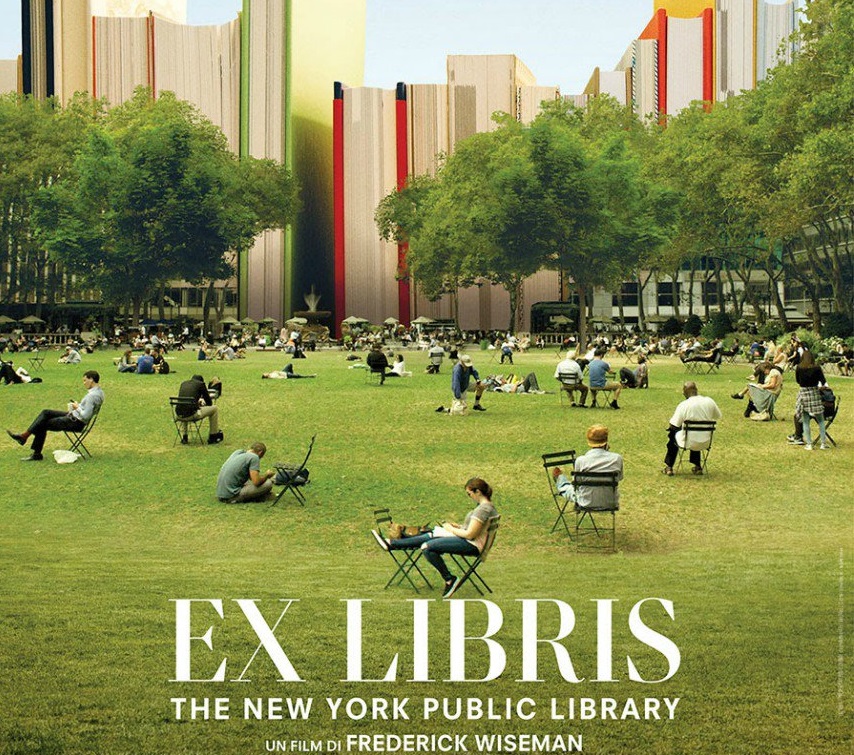 The UConn Library will be hosting a daylong event dedicated to Frederick Wiseman's 2017 documentary film Ex Libris: New York Public Library. A Panel presentation and reception will follow the screening of the film at the Spotlight Theater in Hartford. The program is free and open to the public.
The UConn Library will be hosting a daylong event dedicated to Frederick Wiseman's 2017 documentary film Ex Libris: New York Public Library. A Panel presentation and reception will follow the screening of the film at the Spotlight Theater in Hartford. The program is free and open to the public.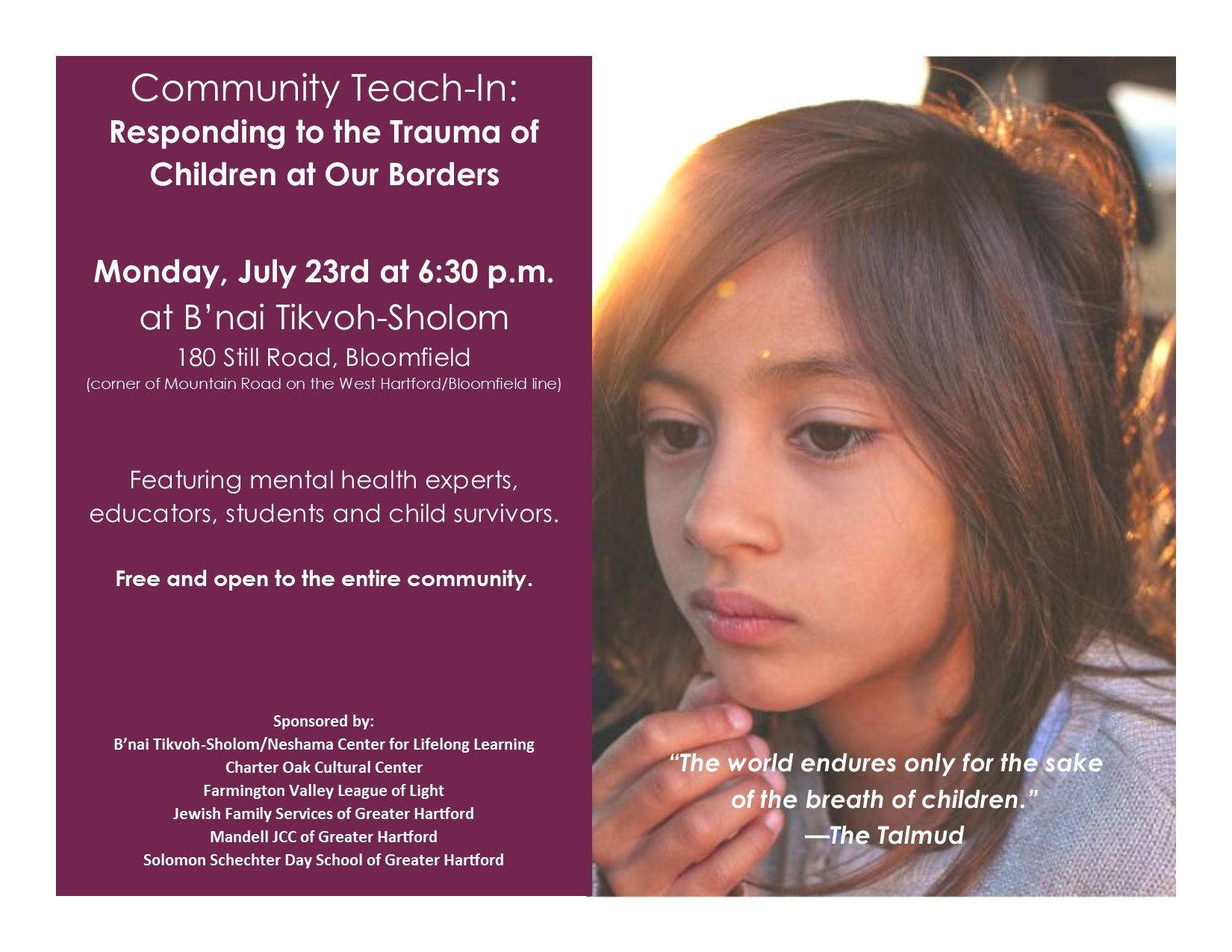
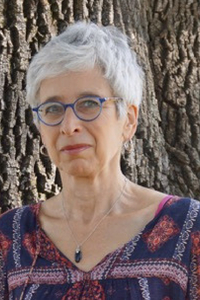 Many congratulations to our colleague Susan Einbinder whose book After the Black Death: Plague and Commemoration Among Iberian Jews was recently released. Professor Susan Einbinder (Hebrew and Judaic Studies and Comparative Literature) will be teaching "The Black Death" and "The Jewish Middle Ages" in the upcoming fall semester. A few seats are still open for both classes. This is a great opportunity to study with one of the leading scholars in the field.
Many congratulations to our colleague Susan Einbinder whose book After the Black Death: Plague and Commemoration Among Iberian Jews was recently released. Professor Susan Einbinder (Hebrew and Judaic Studies and Comparative Literature) will be teaching "The Black Death" and "The Jewish Middle Ages" in the upcoming fall semester. A few seats are still open for both classes. This is a great opportunity to study with one of the leading scholars in the field. 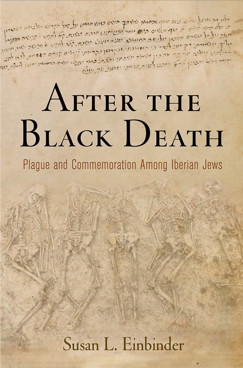 Through elegant translations and masterful readings, After the Black Death exposes the great diversity
Through elegant translations and masterful readings, After the Black Death exposes the great diversity The 2017 volume of the American Jewish Year Book, published by Springer and supported by the Center for Judaic Studies and Contemporary Jewish Life at the University of Connecticut and the Miller Center for Contemporary Judaic Studies at the University of Miami, has recently been released. Included in this volume of the annually published Year Book are topical review articles, population studies, and extensive lists detailing the numerous North American Jewish institutions, periodicals, academic resources, and major events.
The 2017 volume of the American Jewish Year Book, published by Springer and supported by the Center for Judaic Studies and Contemporary Jewish Life at the University of Connecticut and the Miller Center for Contemporary Judaic Studies at the University of Miami, has recently been released. Included in this volume of the annually published Year Book are topical review articles, population studies, and extensive lists detailing the numerous North American Jewish institutions, periodicals, academic resources, and major events. Chapters on population studies for the United States, world Jewry, and Canada provided by Ira Sheskin and
Chapters on population studies for the United States, world Jewry, and Canada provided by Ira Sheskin and 